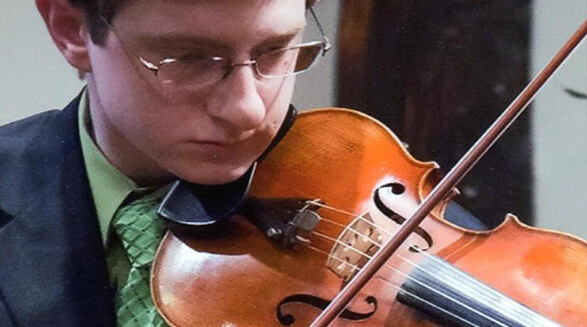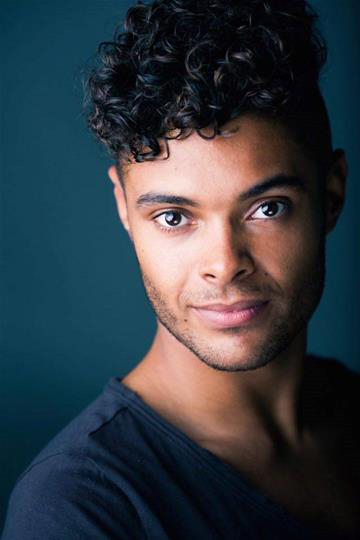In 2010, Tyler’s death became a global news story, highlighting the impact & consequences of bullying
Tyler was smart, funny and talented, with a big heart and a determined spirit, but internally he was struggling with depression and suicidal tendencies. He ultimately took his own life at just 18 years old. It has been surreal to piece together these two very different people: the Tyler I knew and loved, and the one I never knew at all.
I have struggled to process how anyone could want to hurt Tyler. He was hard not to love. He never had problems with people that bullied in high school, so when I learned that he had been violated and abused by his college peers, I was in total shock. Tyler was the good kid that never got in trouble. And when he finally was in trouble, he didn’t know what to do.
In September 2010, my brother was starting his freshman year at Rutgers University in the US. He had come out to me (actually, we came out to each other) earlier in the summer. I was very supportive and encouraged him to reach out to me no matter what the situation. Tyler came out to our parents only two days before leaving for college. They were shocked, but they advised him to be careful and guarded in his new environment. A new living situation with strangers can be risky, and lesbian, gay, bisexual and transgender young people are at a higher risk of being targeted than their straight peers.
“Tyler was the good kid that never got in trouble. And when he finally was in trouble, he didn’t know what to do”
My brother had been closeted in high school and he was excited to finally be out, to be himself for the first time. He was expecting to find a world that embraced him, but instead he soon realised that the start of his college experience had become a nightmare scenario that was far worse than he could have anticipated.
Tyler asked his roommate for and was granted permission to have privacy in their shared dorm room so that he could be alone with a date. What he didn’t know was that when Tyler’s roommate left, he went across the hall to another student’s dorm room and turned on her computer and remotely accessed his webcam, which he had left deliberately pointed at Tyler’s bed. The roommate invited a group of students to have a “viewing party” in the room and sent tweets to students at Rutgers as well as high school friends, detailing exactly what was going on. Tyler’s privacy was violated in a vulnerable moment.
My brother soon realised what had happened. He read his roommate’s Twitter account, which was filled with nasty, homophobic comments about Tyler and the encounter, which clearly was intended to be private. Tyler spiralled into crisis mode, and could not see any way out. I was there, and would have dropped everything to go to him and help him. But he didn’t reach out to me. The shame and stigma of what Tyler experienced pushed him toward a permanent choice that cannot be undone. That much cruelty and intolerance was too much for one gentle, shy young man to bear.
Over the last several years, my family has had to grapple with the questions of why this happened, and how we could have prevented it. No matter how much we want to, we can’t travel through time to bring Tyler back. But we have channeled our love for Tyler to serving other youth who feel isolated and targeted by bullies by creating the Tyler Clementi Foundation. We have chosen to use our personal tragedy as a teaching tool for others, so that more lives like Tyler’s are not senselessly lost. This fall, our foundation launched a research-based initiative that we believe will help other families avoid the sort of tragedy and pain that befell ours: the #Day1 Campaign.
“The shame and stigma of what Tyler experienced pushed him toward a permanent choice that cannot be undone”
The two biggest questions we have wrestled with are: “Why would someone want to hurt or humiliate Tyler?” And, “How can we make sure that other youth who are being bullied reach out for help before they take a self-harming action?” #Day1 addresses both of these issues. While it may seem obvious that we should always treat others with respect and dignity, the reality is that middle, high school, and college level students are not hearing this message from their teachers or administrators at school.
The #Day1 campaign explicitly spells out for young people exactly how they are expected to behave towards their peers. It states that mistreatment and abusive, cruel behaviour that will not be tolerated against any student for any reason. After students have heard the #Day1 pledge, they know exactly what is expected of them as part of the school community, and there is no room for misunderstanding. If Tyler or his peers had heard this statement at the beginning of their freshman year, it may have drastically impacted the way he was treated.
In regards to my second question, I believe the biggest obstacle for young people reaching out for help is the shame and stigma they feel when they experience bullying and harassment. It is my hope and belief that by having teachers and school administrators read the #Day1 pledge to students, it will send the message, “You are not alone. You have nothing to be ashamed of. Let us help you. We are here to help, and we want to help.” When a student hears their school’s principal read the #Day1 pledge during an assembly, or their history teacher read the pledge in the classroom, it sends them the message that they are not the only person that this is happening to. It lets them know that their school has an environment of support and acceptance for those who are different, and they are empowered to speak out if their dignity is being violated in any way.
Written by James Clementi (Tyler’s brother)
Learn more about the Tyler Clementi Foundation at http://tylerclementi.org













